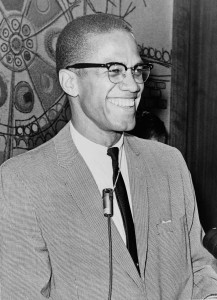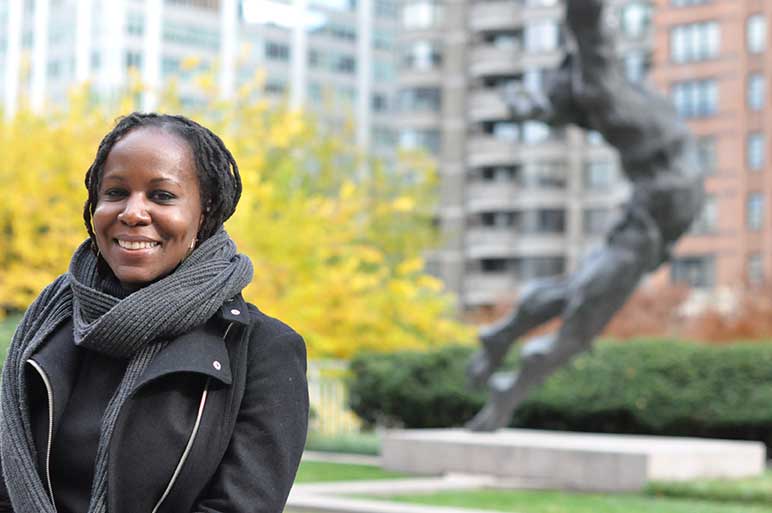On Feb.21, 1965, civil rights leader Malcolm X was assassinated at the Audubon Ballroom in Harlem. To mark the occasion, Inside Fordham asked Aimee Meredith Cox, Ph.D., assistant professor of African and African-American Studies, for her perspective on this anniversary.
What is significant about this 50-year-anniversary to you?
It means something very different right now than it probably would have if it had come two years ago. We’re in a very exciting and potentially transformative time, particularly in the United States, in how we think about the question of race. And particularly what it means for us to understand that race is a social construction and also to understand that it has very real lived consequences for lots of people in ways that reinforce social inequity.
I think it has everything to do with what’s been happening here around state violence. People are questioning everything from ‘stop and frisk” to the deaths of Mike Brown and Eric Garner.
Does an anniversary like this focus people’s attention on the past?
It does. It forces young people to ask, ‘Ok, so what is different?’ There are things that Malcolm X was speaking to and fighting against, and they can ask ‘Wow, how much has really changed?’ It compels them to connect the dots from the history to the present.
Is there is any one person today who embodies his message?
No. What’s powerful is that to some extent this has always been the case. When we talk about the civil rights and black power movements, we think of key figures like Martin Luther King, Huey Newton, Angela Davis, and Malcolm X. But there were always masses of everyday people–collective energy and organizing–who were meeting in their kitchens and in community centers.
The difference today is that that collective organizing is more visible. So we’re not necessarily seeing these individual figureheads. Think about the hash tag #blacklivesmatter. When we tell a story about a place in history, we look for singular figures that we can say “led” this movement, but today it’s almost impossible because it’s happening in Ferguson, in Brooklyn, and all over.

What do you think Malcolm X’s legacy is?
The phrase ‘the personal is political’ is used so much that it’s sort of lost meaning. But if we think about educating the whole person, Malcolm X’s life is a very clear example of that. We have to first think about the transformations that need to happen in our thinking and our own actions before we can address the larger social structure.
It’s not just marching in the streets, signing this petition, or protesting a thing as if we are somehow outside of that process. We have to question the ways that we act, the ways that we confront, ignore, or step outside of justice in our everyday lives. His life is a very clear and powerful testimony to the fact that the personal is the political.
The other phrase he’s known for is “by any means necessary.” After all this time, is there still confusion surrounding his legacy?
Because Malcolm X was so transparent about his experiences in prison and with illegal activity, he was always more of a taboo figure. Martin Luther King is a much more palatable figure to talk about, especially in educational settings—even though we know his life was not all that clean and easy. That is changing now because we’re acknowledging bias in things we’ve taken for granted as neutral—like the legal systems—and we understand better how poverty works and the choices that some people have or don’t have. Today, Malcolm X is worthy of being acknowledged and celebrated as a complicated human being, and not as an iconic figure.

